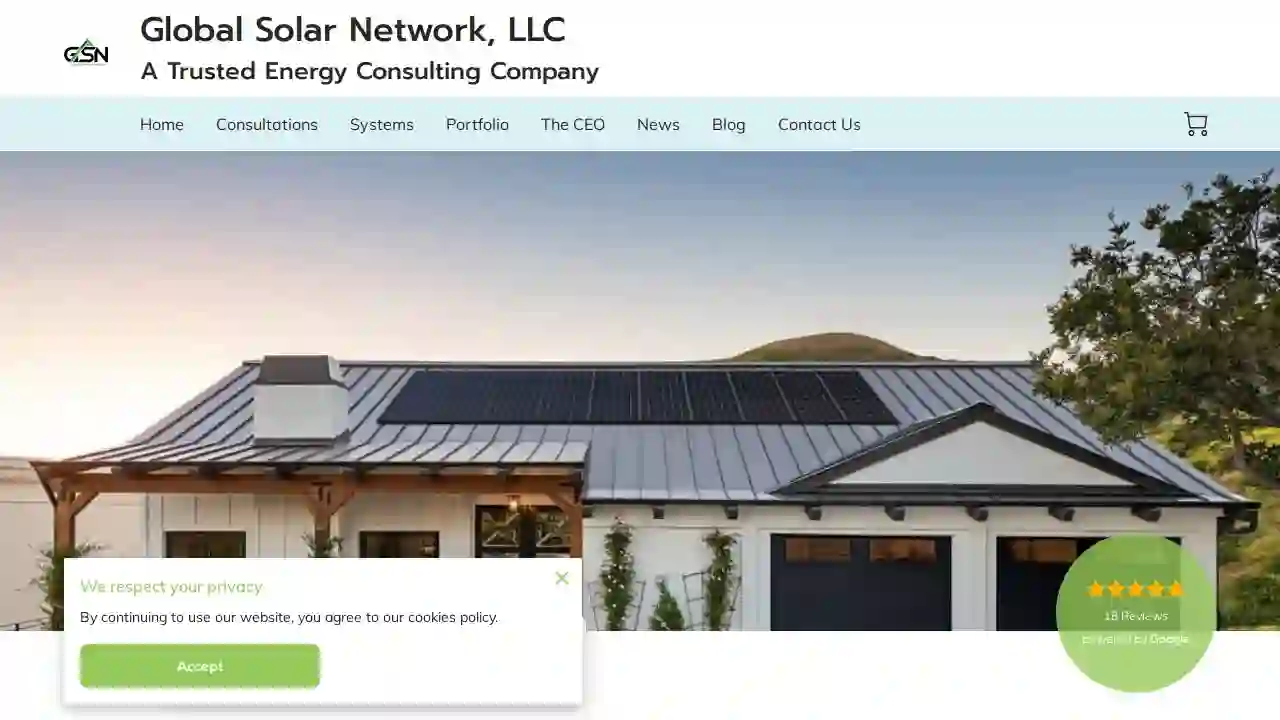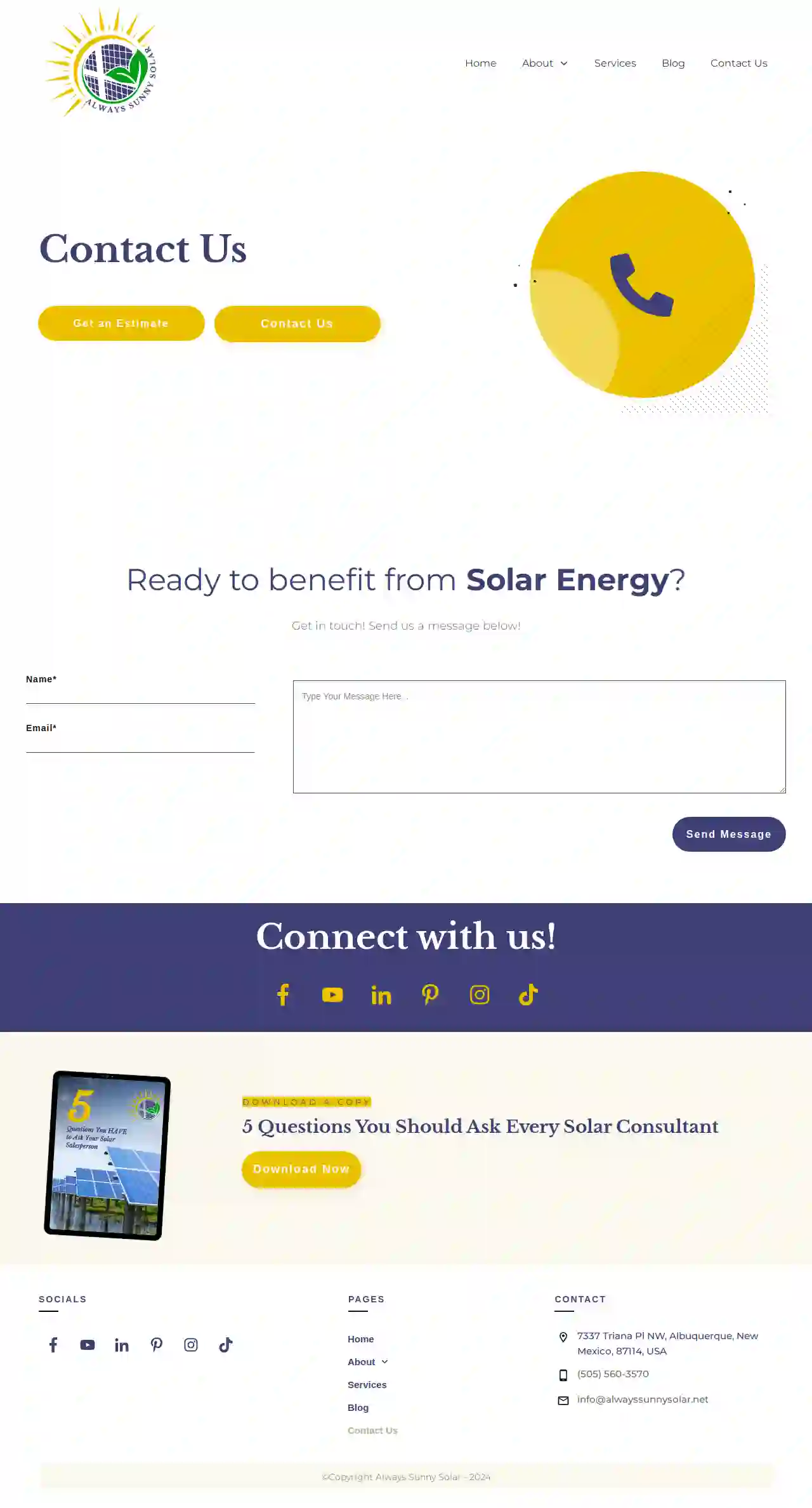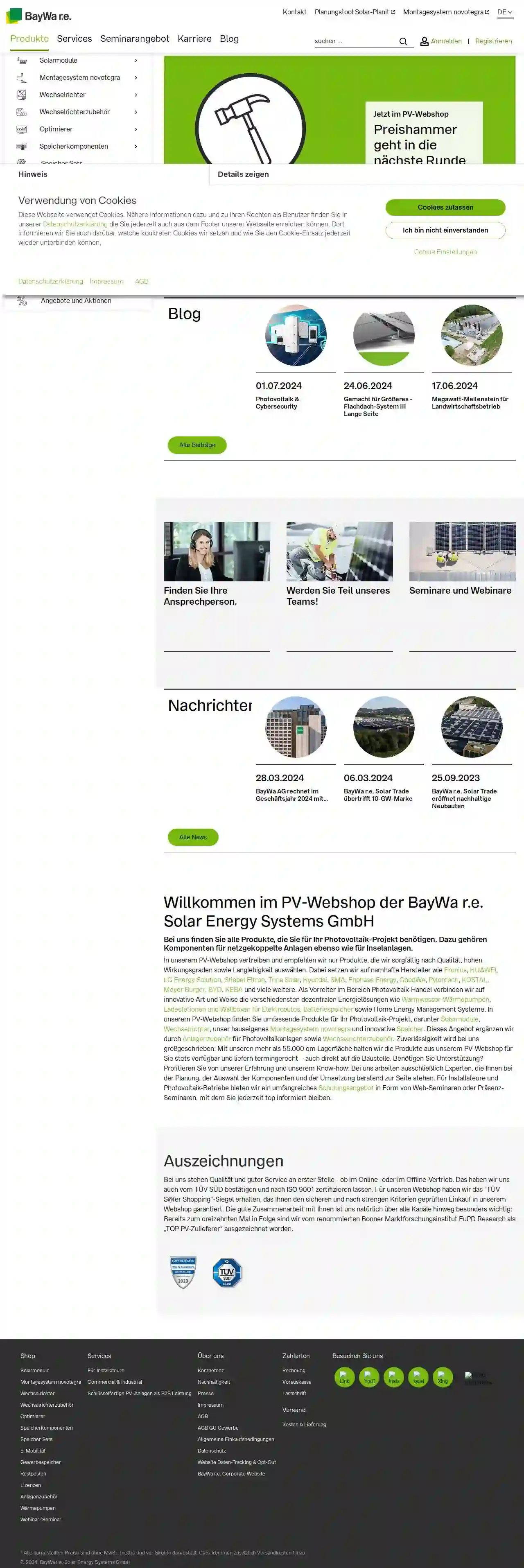Solar Installers Farmington
Find Solar Installers Near Me in Farmington
Get multiple Solar Installers quotes for your project today! Compare profiles, reviews, accreditations, portfolio, etc... and choose the best deal.

Ocotillo Solar Electric
4.828 reviewsAlbuquerque, New Mexico, 5854 Osuna Rd. NE, 87109, USOcotillo Solar Electric is a locally owned and operated solar company based in New Mexico. They specialize in providing residential solar solutions for homeowners, focusing on exceptional customer service, quality workmanship, and industry-leading products and equipment. Their staff is led by NABCEP certified installers, ensuring the highest level of expertise during the installation of solar systems. Ocotillo Solar Electric aims to provide 'worry-free' Solar PV systems for homes, leveraging their extensive experience and knowledge of local incentives and solar technology.
- Services
- Why Us?
- Accreditations
- Our Team
- Testimonials
- Gallery
Get Quote
Positive Energy Solar - Santa Fe
552 reviews1235 Siler Road, Santa Fe, 87507, USPositive Energy Solar is a leading provider of solar panel installation in Santa Fe, New Mexico. With over 24 years of experience, they offer top-quality energy systems for residential, commercial, and government buildings. Their team of professionals ensures a smooth process from permitting to installation, providing a 30-year complete confidence solar warranty.
- Services
- Why Us?
- Accreditations
- Our Team
- Testimonials
- Gallery
Get Quote
WhyGen Solar
4.838 reviews4311 Sara Rd, Ste 207, Rio Rancho, 87124, USWhyGen Solar is an 'A+ Rated' solar company by the BBB in the Southwest Region of the United States. We serve both residential and commercial clients with a wide range of solar power needs. Founded in 2020 amid the 2020 Corona Virus Pandemic, CEO Aaron Rice adopted the philosophy from the book 'Start With Why' by Simon Sinek, realizing there is an untouched space within the industry that puts a company's sole focus on creating an unrivaled experience for sales reps.
- Services
- Why Us?
- Accreditations
- Our Team
- Testimonials
- Gallery
Get Quote
Affordable Solar
4.7215 reviews3900 Singer Blvd NE, Albuquerque, NM, 87109, USAffordable Solar is a leading solar installation company in New Mexico, providing solar panel installations for homes and businesses since 1998. The company is committed to integrity, teamwork, and exceptional customer service. With over 3,000 solar arrays installed in New Mexico and over 20,000 systems supplied to customers in 96 countries, Affordable Solar is a trusted and reliable choice for solar energy solutions.
- Services
- Why Us?
- Accreditations
- Our Team
- Testimonials
- Gallery
Get Quote
Global Solar Network, llc
123 Solar Lane, Suite 100, Albuquerque, 87109, USGlobal Solar Network, LLC is a solar consulting company based in New Mexico. We are vertically integrated, which means that everyone involved in your project is a renewable energy professional. This enables us to guarantee the highest quality installation and support for our customers. We prioritize transparency, honesty, and world-class customer service from day one. This is why we handle every part of the process for our customers, resulting in a seamless and stress-free experience.
- Services
- Why Us?
- Accreditations
- Our Team
- Testimonials
- Gallery
Get Quote
Always Sunny Solar
7337 Triana Pl NW, Albuquerque, 87114, USAlways Sunny Solar is a solar broker dedicated to bringing transparency to the solar industry. Our mission is to provide fair options and solid information for customers to make the right choice for them. We work with Albuquerque's top solar installers to ensure customers receive excellent service and desired outcomes.
- Services
- Why Us?
- Accreditations
- Our Team
- Gallery
Get Quote
Sunspot Solar Observatory
4.7229 reviews3001 Visitor Center Rd Drive, Sunspot, 88349, USSunspot Solar Observatory, located on Sacramento Peak in Sunspot, New Mexico, is home to many important scientific discoveries, unique solar observing facilities, and breathtaking views. The Observatory continues to help astronomers study our nearest star. The Observatory's commitment to solar science leadership and public education makes Sunspot Solar Observatory an exemplar of scientific excellence.
- Services
- Why Us?
- Accreditations
- Our Team
- Testimonials
- Gallery
Get Quote
Sunternal
4.637 reviewsSan Jose, CA, 123 Solar Way, 95134, USSunternal is a step beyond traditional solar systems. We take a holistic approach to energy use, production, storage, and optimization. Don’t just switch power sources; upgrade your outlook on power itself.
- Services
- Why Us?
- Accreditations
- Our Team
- Testimonials
- Gallery
Get Quote
BayWa r.e. Solar Systems
529 reviewsArabellastraße 4, Munich, 81373, USBayWa r.e. is a leading global renewable energy developer, service provider and wholesaler, delivering a wide range of products and solutions for the solar and energy storage sectors. With a strong focus on innovation and sustainability, BayWa r.e. offers comprehensive services and solutions for installers, project developers, and commercial and industrial clients. Their product portfolio includes solar modules, mounting systems, inverters, energy storage solutions, and e-mobility products, among others. BayWa r.e. is committed to driving the global energy transition forward and making renewable energy accessible to everyone.
- Services
- Why Us?
- Accreditations
- Our Team
- Testimonials
- Gallery
Get Quote
Sunfire Solar
519 reviews121 Wyatt Drive, Ste 1, 121 Wyatt Drive Ste 1, Las Cruces, 88005, USSunfire Solar is a local business that specializes in providing solar energy solutions and HVAC innovations to maximize energy efficiency in the Greater New Mexico Area and West Texas. They offer a range of services including solar modules, battery backup and storage, EV home charging, off-grid systems, solar carports and canopies, and SPAN smart panel. Their HVAC services include combined solar and HVAC, mini splits, heat pumps and refrigeration units, and custom ductwork. Sunfire Solar believes in making solar energy accessible and offers personalized, no-pressure consultations to help customers understand their options. Their process involves first contact, assessment, implementation, and ongoing support.
- Services
- Why Us?
- Accreditations
- Our Team
- Testimonials
- Gallery
Get Quote
Over 4,210+ Solar Installers registered
Our solar installers operate in Farmington and beyond!
SolarCompaniesHub has curated and vetted Top Solar Businesses in Farmington. Find the most trustworthy pro today.
Frequently Asked Questions About Solar Installers
- Analyze your energy bills
- Assess your roof's suitability
- Calculate your potential solar energy generation
- Recommend a system size that meets your needs and goals.
- Use a Directory Like SolarCompaniesHub: We connect you with pre-screened, qualified solar installers in your area.
- Check Online Reviews: Look for positive reviews on Google, Yelp, and other reputable sources.
- Ask for Referrals: Get recommendations from friends, family, or neighbors who have gone solar.
- Verify Credentials: Ensure the installer is licensed, insured, and certified by reputable organizations (e.g., NABCEP in the US).
- Get Multiple Quotes: Compare quotes from at least 3-4 installers to find the best value for your project.
- Ask Questions: Don't hesitate to ask installers about their experience, warranties, and the process they follow.
- Monocrystalline: Made from a single silicon crystal, known for high efficiency (typically 18-22%) and sleek black appearance.
- Polycrystalline: Made from multiple silicon crystals, slightly less efficient (15-17%) but often more affordable than monocrystalline.
- Thin-film: Made from thin layers of photovoltaic material, lower efficiency (8-12%) but can be flexible and lightweight.
How do I choose the right solar panel system size for my needs?
Do solar panels increase my home value?
How do I find a good solar installer near me?
What are the different types of solar panels?
How do I choose the right solar panel system size for my needs?
- Analyze your energy bills
- Assess your roof's suitability
- Calculate your potential solar energy generation
- Recommend a system size that meets your needs and goals.
Do solar panels increase my home value?
How do I find a good solar installer near me?
- Use a Directory Like SolarCompaniesHub: We connect you with pre-screened, qualified solar installers in your area.
- Check Online Reviews: Look for positive reviews on Google, Yelp, and other reputable sources.
- Ask for Referrals: Get recommendations from friends, family, or neighbors who have gone solar.
- Verify Credentials: Ensure the installer is licensed, insured, and certified by reputable organizations (e.g., NABCEP in the US).
- Get Multiple Quotes: Compare quotes from at least 3-4 installers to find the best value for your project.
- Ask Questions: Don't hesitate to ask installers about their experience, warranties, and the process they follow.
What are the different types of solar panels?
- Monocrystalline: Made from a single silicon crystal, known for high efficiency (typically 18-22%) and sleek black appearance.
- Polycrystalline: Made from multiple silicon crystals, slightly less efficient (15-17%) but often more affordable than monocrystalline.
- Thin-film: Made from thin layers of photovoltaic material, lower efficiency (8-12%) but can be flexible and lightweight.